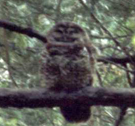About Will Graves
Will Graves is the author of Wolves in Russia: Anxiety Through the Ages (edited and Foreword by Val Giest), a Very Important Book about wolves and reviewed in the W.I.S.E. Colloquium: Wildlife Sciences [here]. A short but sweet biography of Graves follows, sent to us by alert spy Sharon B. Thank you, Sharon. Will Graves is a wonderful author, husband, father, and retired public servant. He still serves, by reminding us of the many dangers imposed by wolves.
Maryland Man Aims to Delist Wolf
By ANATH HARTMANN, Southern Maryland Online, November 29, 2008 [here]
WASHINGTON (Nov. 29, 2008) — Will Graves has hunted game in the woods of Kazakhstan, vaccinated cattle against deadly disease in Mexico and done U.S. intelligence work in Germany.
Now the former National Security Agency linguist, whose lanky, six-foot-plus, broad-shouldered frame and thick shock of white hair make him look at least a decade younger than his 81 years, is on another mission — from his home in Millersville.
A 40-plus-year interest in wolves and their impact on cattle health led the Ladonia, Texas, native to pen a book on these topics last year. “Wolves in Russia: Anxiety Through the Ages” has sold 1,000 copies to date and been translated into Finnish.
“(Wolves) are beautiful but their numbers need to be controlled,” said Graves on a recent weekday afternoon, clad in a gray sweat suit and glasses. “The real threat is the parasites. I’m about the only one who’s ever brought that up.”
Graves, whose cozy, pastel home belies a fascination with weaponry and wolves, could be called something of an expert on “neospora caninum,” a parasite that causes miscarriage in pregnant cattle — and which Graves says wolves carry and pass in their feces.
Wolves are not native to Maryland.
A lifelong hunter whose interest in the sport led him to start reading about wolves in the 1950s, Graves recently received a written response to a letter he wrote in September to the U.S. Agriculture Department about wolves as carriers of the parasite. The agency said it would look into his concerns.
The status of wolves as an endangered species in parts of the U.S. has led to an explosion in wolf population in recent decades, Graves said. Cattle track wolf feces through pasture grass, ingest the parasite eggs present in the feces and become permanently unable to bear calves.
“‘Neospora caninum’ is a threat to the U.S. cattle industry,” said Graves, who is now working on a second letter to the federal government about the need to delist wolves in order to ameliorate the parasite problem.
Eric Koens, an acquaintance of Graves’ who raises cattle in northern Wisconsin, said the parasite has long been a problem for him and other farmers in the Great Lakes region.
“We have cattle that are losing their calves at five to seven months (in their pregnancies), so we don’t have any income from those cows,” Koens said, adding that he lost about 70 percent of his calf production to the parasite during the 1970s. “I think (Graves’) book is pretty important because he talks about wolves and what their impact has been.”
